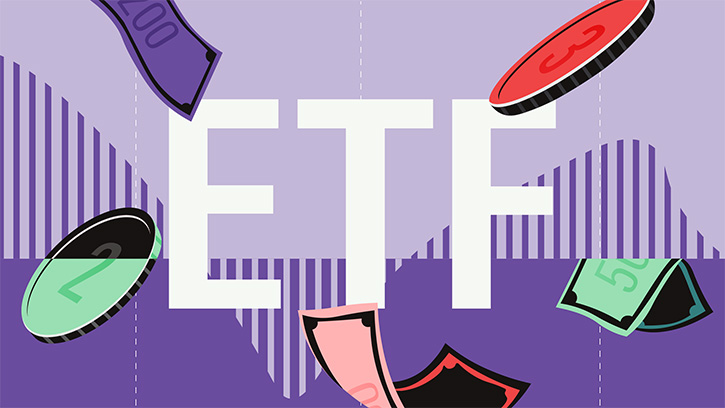
Putting money into investment trusts at an early age helped kickstart Sandra Mayall’s interest in investments. Sandra, who is in her mid-40s, initially invested in F&C’s flagship investment trust (FCIT) when she started working in her early 20s.
“I started to save when I first started working. My Dad’s advice was to open an investment trust savings account with F&C with this money. I did this and could see how the money grew, particularly as I started to earn and save a bit more.”
This has encouraged her to look at other investments and diversify her holdings over the years.
Sandra, who lives on the south coast with her sons, splits her money equally between her pension and an Isa. She says: “I have mainly stuck with investment trusts, but also have some direct shareholdings, though I haven’t put a huge amount of money in these.”
“I started off investing in global trusts like F&C, but I have tried to look at different sectors and options over the years. I spent a bit of time building up money in emerging markets and the Far East and now I am currently interested in robotic funds, infrastructure and funds that invest in alternative sources of energy.
“I feel that I have built up a core portfolio with global funds, UK funds and good solid performing funds which means I am able to diversify into something a little more exciting.”
Factory Farming is a No-Go Area
Sandra, who invests her Isa and pension with AJ Bell, likes the wide range of options on offer. However, despite her interest in green energy she is still on the fence about some ESG offerings.
“This seems to be such a wide area, and what one person sees as ethical or responsible, might not suit another person. For example there is huge investment into factory farming with some of these funds, but I do not agree with these methods so would avoid funds that invest in this way. Other people may see this as an efficient way of feeding the world and think it has good social ethics."
Sandra tries to look at what an investment trusts holds before putting in her money. “I also look at performance as well as overall costs and the reputation of a fund house. For example Baillie Gifford are well known and have an excellent team. I also look at the recommendations in the financial press and, of course, the track record of dividend payouts.”
Although investment trusts are more expensive than some passive funds she feels they represent good value for money, and they allow her diversify across different geographical regions and sectors. “I think it is worth it for someone else to make the investment decisions. They are professionals and know the market better than I do. They also have access to investments that non-professionals like me do not have access to.”
When it comes to her holdings Sandra's best performing fund has been the Silver-rated Scottish Mortgage Investment Trust (SMT). This trust has delivered annualised returns of 37.02% over the past five years, although Morningstar warns that its high growth and highly leveraged portfolio means that its performance may be volatile, which may make is less suitable for risk-averse investors. However, Morningstar analyst are by the trust’s experienced management team from Baillie Gifford.
F&C Investment Trust, is one of the oldest investment trusts, and has been running for more than 100 years. But it continues to be a strong performer, delivering annualised returns of 15.36% over the past five years according to Morningstar data.
The trust has a Bronze Analyst Rating from Morningstar analysts who say: “Investors remain in safe hands with experienced manager Paul Niven at the helm. His pragmatic and well-executed approach should benefit investors in the long term.”
Sandra’s more recent investments have included a L&G Global Robotics & Automationv fund. “I only have a small amount of money in this at the moment, to see how it goes. I do remember the technology bubble a while back so I am suitably cautious.”
Everyday Shares
Sandra also invests directly in companies she uses everyday. For example she has a small holding in Royal Dutch Shell (RDSB) and in National Grid (NG.). These have been steady performers and pay good dividends, she says.
But this strategy has not always paid off. For example she has she has also invested in Marks and Spencer Group (MKS).
“This has not done so well recently. I invested in them about 25 years ago because they were a main high street name, they had a good reputation and paid a good dividend. They owned a lot of their stores so seemed like a reasonable company to invest with.
“However more recently internet shopping has taken off and the value of the company has declined as a result. I’ve learned from this the importance of keeping an eye on your portfolio and to always monitor trends.”
Sandra, who is separated from her partner, says her main investment goal is to provide funds for her retirement. “I would like to build up a fund large enough to live from the income it produces without touching the capital.
“My plan is to start easing into my retirement when I am 55.” She currently works as a compliance manager.
She adds: “I haven’t significantly changed my investment strategy in recent years, but I think recent events, like Brexit and the coronavirus have illustrated the importance of thoroughly researching your investments and building a balanced portfolio. Good well researched investment decisions never really fail over the longer term, and I seem to have done quite well considering recent events.”





























